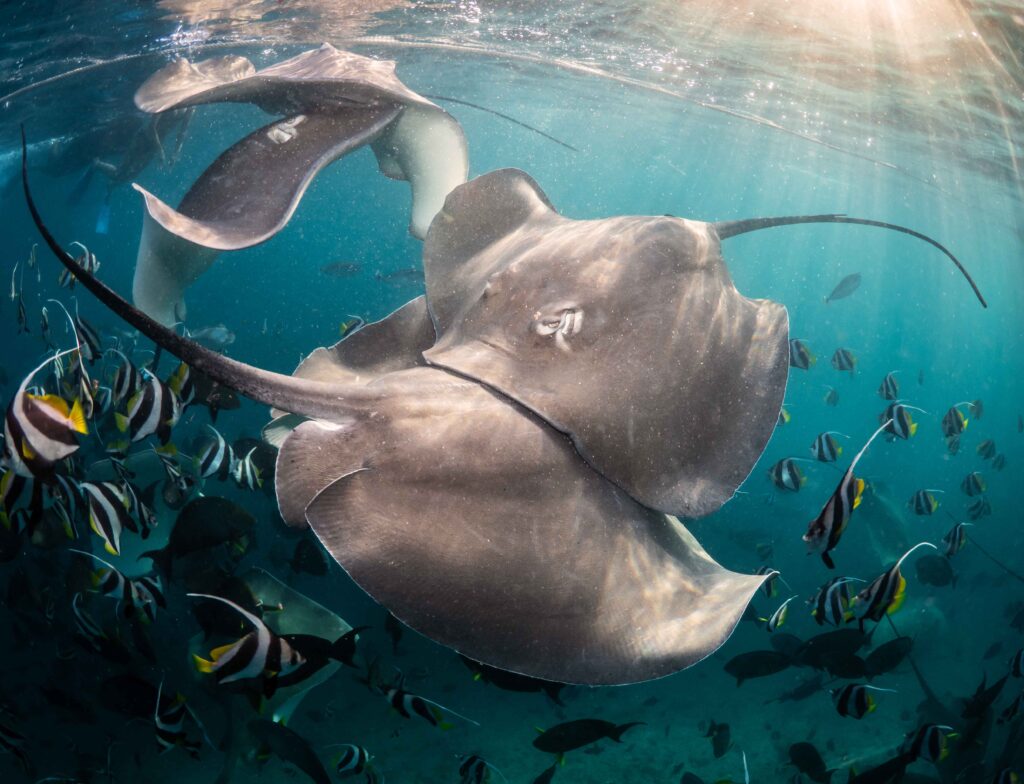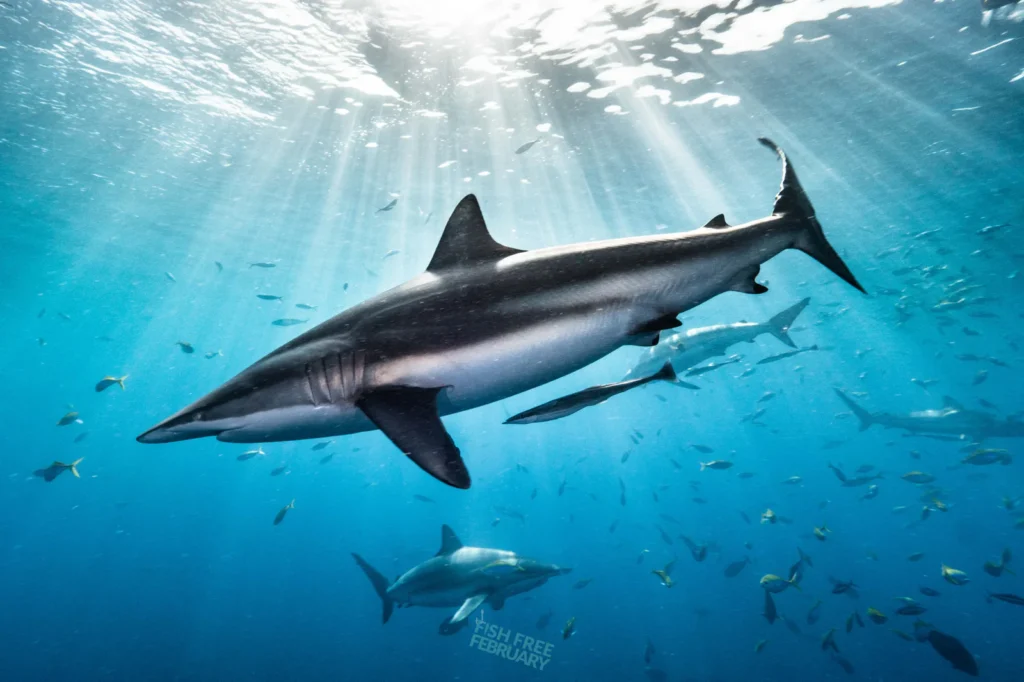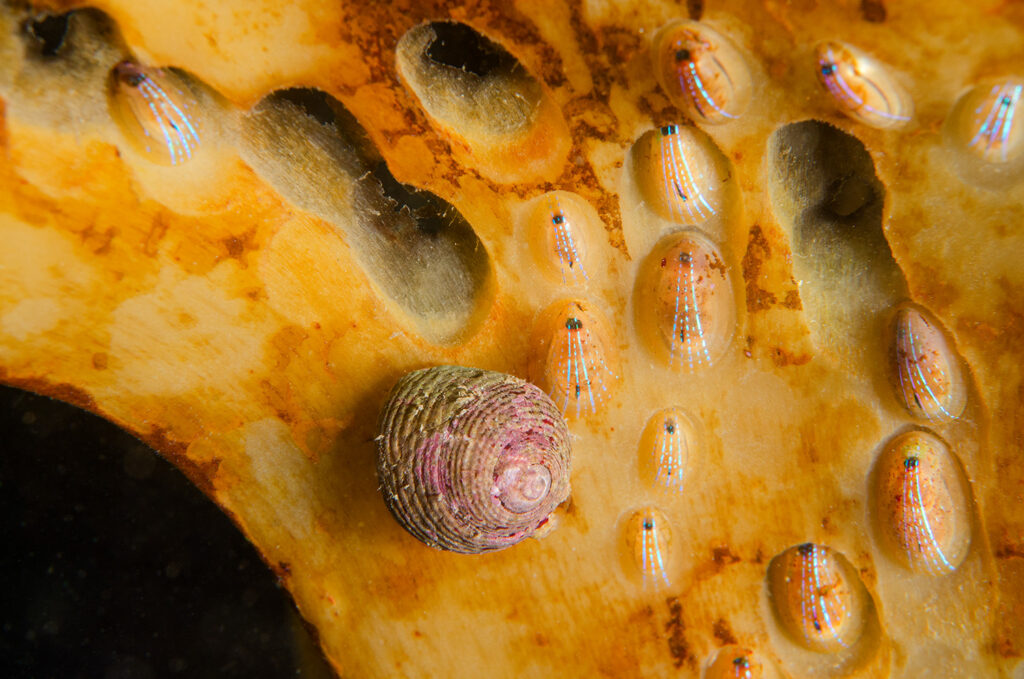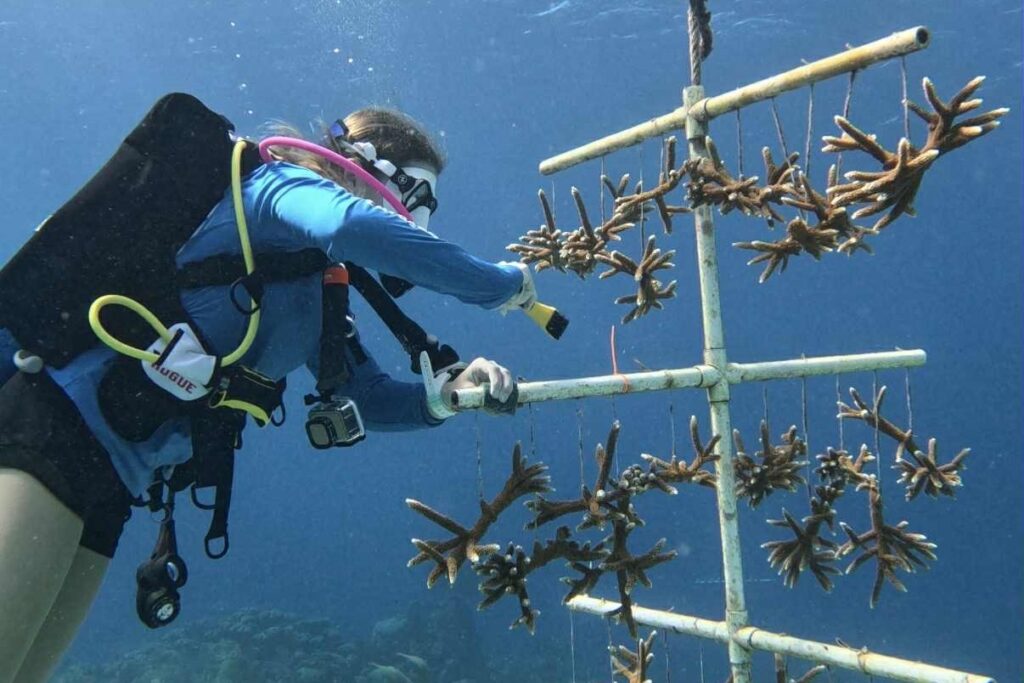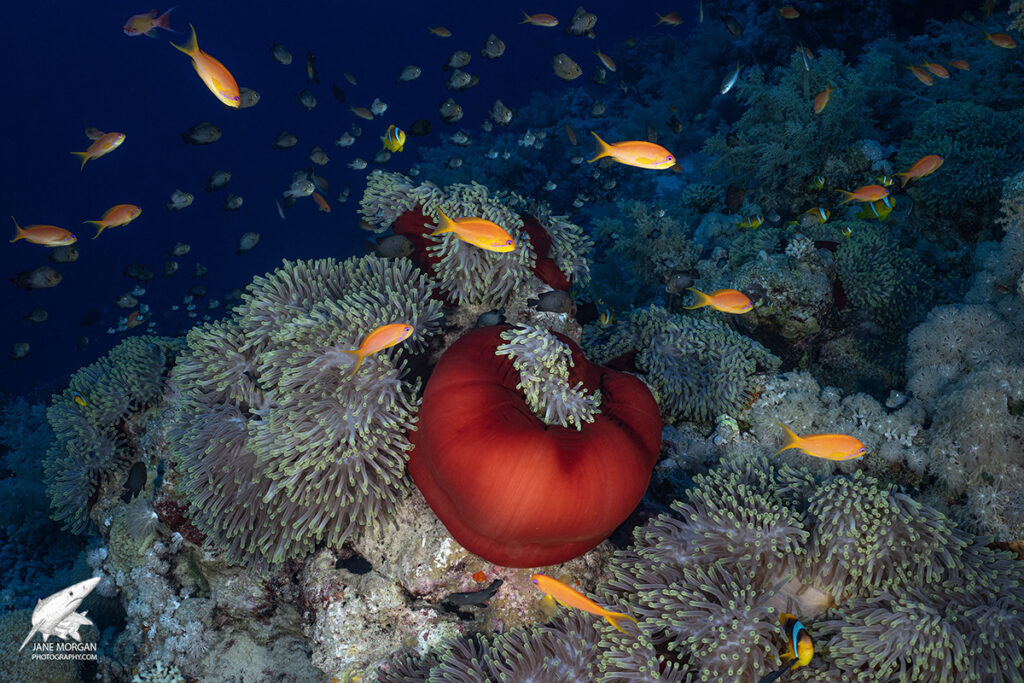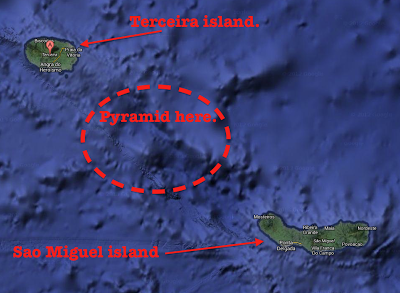Octopus: Passionate, fluid and subtly dissimulating
Romantic, creative and almost human in their home building behaviour, octopus feed on crabs, crayfish and molluscs, and the shells are often found around their octopus castles which are distinctive barriers of shells around the mouth of their burrows, and worth looking for around rocks and on rubble bottoms. A hole is converted into a des-res octopus style.

One of the most erotic events I have ever watched on the reef was on Whale Rock in Mauritius.
Exposed to the violence of the open ocean, Whale rock has few corals, but massive topography and a large and varied fish population. There we found 2 octopus behaving strangely. One of them was huge, maroon, and edging around the rock towards another huge octopus. This one was green. Octopus normally change colour according to their surroundings, so this was unusual. After a while the big red guy began to push a long black tentacle towards the green one- who began to go pale. Was this the beginning of a territorial battle? But it was not fear, it turned out to be passion.
The red guy was the male, and he was in fact offering the green female octopus a sperm parcel on his extended tentacle. When octopuses reproduce, the male uses a specialized arm to transfer the parcel from his reproductive organ into the female’s mantle cavity. The male often dies within a few weeks of mating, while the female can keep the sac stored for some months.
She was very shy, almost skittish, and flirted with him, turning white and green and edging towards him then darting away. Eventually he thrust the parcel under one of her tentacles, and she rose up into a parachute form, and turned pure white, looking just like a human bride.

Then she seemed to go into a trance and her colour subsided back to the normal greyish colour, before they turned their backs on one another and slithering off in opposite directions. She would hold the parcel safely until her eggs were ready to fertilize. Once they have been fertilized, the female lays sometimes as many as 200,000 eggs, most of which will not survive.
Octopus can hide in plain sight, simply by changing shape and colour to protect themselves. We watched a Tomato spotted rock cod attacking an octopus. The octopus immediately changed colour and shape to exactly mimic the shape and colour of the rock cod.

There are around 300 recognized octopus species. Octopuses do not have tentacles, they actually have 4 pairs of arms, three hearts, 2 eyes and one beak. They walk, run and swim using their arms, and if they are disturbed and afraid they will use jet propulsion to get away. If they are in mortal danger they will release a cloud of ink which contains a chemical that obscures their scent and confuses predators.
The rare and special ones can be found in Mauritius and in Indonesia where we found the mimic octopus, which has extremely long arms, and which readily mimics the surrounding fish life.

All octopus are poisonous to some extent, but the rarest, and the only one deadly to humans if the exquisite, minute blue ringed octopus, found in Indonesia and Australia.
We went to the Lembeh Straits to film him, and we really expected to see something spectacular. For two days we searched the sandy slopes and rubble bottoms. On the third day I spotted a large cockroach scuttling on its front legs along the sand. A cockroach under the sea? I pushed my Go Pro towards him, to get a close-up and he swelled up to twice the size and began to pulsate and flash iridescent blue circles. He was not a cockroach at all. He was a blue ringed octopus. The flash bulbs went crazy as the professional photographers shot pics of him, but he disappeared down a hole before I could film him.
Words Jill Holloway
Pic David Holloway
Copyright Ocean Spirit






